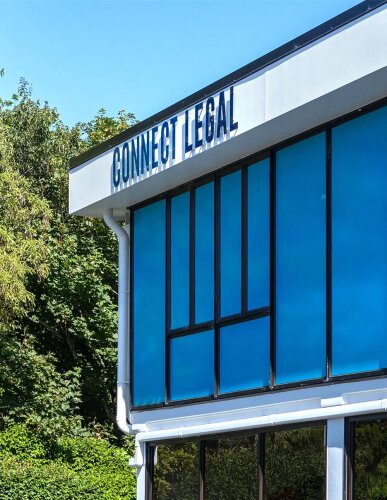Best Merger & Acquisition Lawyers in New Plymouth
Share your needs with us, get contacted by law firms.
Free. Takes 2 min.
List of the best lawyers in New Plymouth, New Zealand
About Merger & Acquisition Law in New Plymouth, New Zealand
Merger and acquisition (M&A) law in New Plymouth is a specialized area that governs the consolidation of companies and assets through various types of financial transactions, such as mergers, acquisitions, consolidations, tender offers, and purchase of assets. New Plymouth, located in the Taranaki region, is home to a range of businesses that may seek to expand, restructure, or transition ownership through M&A activity. The legal process involves not only the negotiation and execution of deals but also strict compliance with New Zealand’s corporate, competition, and tax laws. Both buyers and sellers, whether individuals or companies, must ensure any transaction is legally sound to protect interests and realize commercial objectives.
Why You May Need a Lawyer
Legal expertise is crucial in M&A transactions for various reasons. Engaging a lawyer helps you identify risks and navigate the legal complexities throughout the process. You may need an M&A lawyer in New Plymouth if you are:
- Buying or selling a business or shares in a local company
- Considering a merger with another local or national business
- Looking to acquire assets or intellectual property from another business
- Worried about potential liabilities or existing contracts attached to a target company
- Needing due diligence to verify assets, debts, and legal compliance
- Negotiating terms and structure of an M&A deal
- Seeking to ensure compliance with competition and overseas investment regulations
- Requiring advice on employee and workplace law implications
- Managing tax implications arising from the transaction
- Resolving disputes or post-merger integration challenges
Lawyers are essential to ensure your interests are protected, risks are mitigated, and the transaction adheres to all local and national regulations.
Local Laws Overview
In New Plymouth, as with the rest of New Zealand, mergers and acquisitions are regulated under several important legal frameworks:
- Companies Act 1993 - The main legislation governing company operations, restructuring, and director obligations.
- Commerce Act 1986 - Ensures that transactions do not result in reduced competition or create monopolies.
- Overseas Investment Act 2005 - Regulates investments by overseas persons in sensitive New Zealand assets, including farmland and business assets.
- Fair Trading Act 1986 - Prohibits misleading or deceptive conduct during transactions.
- Employment Relations Act 2000 - Addresses the transfer of employees during a sale, merger, or acquisition.
- Resource Management Act 1991 - Relevant if the company owns real estate or consents necessary for operations.
Local councils, including New Plymouth District Council, may have additional zoning or compliance requirements when property is involved in a transaction. Businesses must also consider local commercial practices and the region’s specific economic context, such as New Plymouth’s strong energy and agriculture sectors.
Frequently Asked Questions
What is the difference between a merger and an acquisition?
A merger is when two companies combine to form a new entity, while an acquisition is when one company purchases another and assumes control. Both processes are governed by similar laws but may have different financial and legal outcomes.
How do I know if my business qualifies as a 'sensitive asset' under the Overseas Investment Act?
Sensitive assets can include land over a certain size, waterfront properties, or significant business assets. A lawyer can help assess whether your transaction is caught by these rules and guide you through the application process if needed.
What is the due diligence process in M&A?
Due diligence involves a thorough investigation of the target company’s financials, legal compliance, assets, liabilities, contracts, and other relevant matters before finalizing the transaction. Legal advice ensures all significant risks are identified and managed.
Can staff be made redundant as part of a merger or acquisition?
Employment law requires that proper processes are followed when restructuring a workforce, including consultations and redundancy payments if applicable. Legal advice ensures compliance with the Employment Relations Act 2000 to protect both employer and employee rights.
What role does the Commerce Commission have in local M&A transactions?
The Commerce Commission monitors and approves mergers or acquisitions that may impact market competition. Some deals require advance notification or even clearance, especially if they involve large market shares.
Do overseas buyers face extra regulations in New Plymouth?
Yes. Under the Overseas Investment Act, overseas buyers may need consent for buying certain businesses or land. It is important to assess investment structures early in any transaction.
How long does a typical M&A transaction take?
Timelines vary depending on the complexity and regulatory requirements. A straightforward business sale might take a few months, while more complex or regulated deals could take longer, especially if regulatory approvals are required.
Who drafts and negotiates the sale and purchase agreement?
This agreement is usually prepared and negotiated by the parties’ legal representatives. It sets out the terms, warranties, purchase price, and conditions of the deal.
Can I keep the deal confidential?
Yes, confidentiality agreements are common practice in M&A deals. Lawyers can prepare legally binding non-disclosure documents to protect sensitive information throughout negotiations and afterwards if required.
What happens after the sale or merger completes?
Post-completion, parties must manage integration, transfer assets or shares, update records with the Companies Office, notify regulators if needed, and settle outstanding matters like employee entitlements. Legal guidance ensures a smooth transition.
Additional Resources
If you need more information or support, consider contacting the following organizations:
- New Zealand Companies Office - For company searches and registrations
- Commerce Commission - For guidance on competition clearances
- Overseas Investment Office - For advice on overseas investment rules
- New Zealand Law Society - For lawyer referrals and legal information
- New Plymouth District Council - For local business and property rules
- BusinessNZ - For broader business policy and advocacy
Local commercial law firms and business advisory services in Taranaki can also provide tailored guidance.
Next Steps
If you are considering a merger or acquisition in New Plymouth, your first step should be to consult with a lawyer who specializes in corporate and commercial law. They can help you assess your goals, identify risks, and design a strategy that complies with all applicable laws. Prepare relevant company documents, financial records, and a list of your objectives before your initial meeting. Consider whether you need support from other professionals such as accountants, business brokers, or financial advisers. Taking early legal advice ensures your interests are protected from the outset and helps pave the way for a successful, compliant transaction.
Lawzana helps you find the best lawyers and law firms in New Plymouth through a curated and pre-screened list of qualified legal professionals. Our platform offers rankings and detailed profiles of attorneys and law firms, allowing you to compare based on practice areas, including Merger & Acquisition, experience, and client feedback.
Each profile includes a description of the firm's areas of practice, client reviews, team members and partners, year of establishment, spoken languages, office locations, contact information, social media presence, and any published articles or resources. Most firms on our platform speak English and are experienced in both local and international legal matters.
Get a quote from top-rated law firms in New Plymouth, New Zealand — quickly, securely, and without unnecessary hassle.
Disclaimer:
The information provided on this page is for general informational purposes only and does not constitute legal advice. While we strive to ensure the accuracy and relevance of the content, legal information may change over time, and interpretations of the law can vary. You should always consult with a qualified legal professional for advice specific to your situation.
We disclaim all liability for actions taken or not taken based on the content of this page. If you believe any information is incorrect or outdated, please contact us, and we will review and update it where appropriate.










